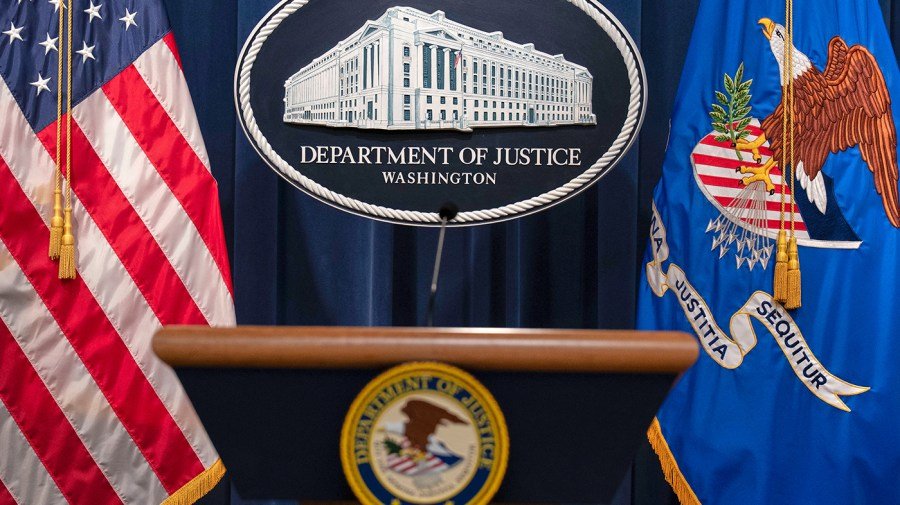
The Trump administration has sued the U.S. District Court for the District of Maryland and all 15 of its judges over an order slowing down its speedy deportation efforts, a striking escalation in its battle with the judiciary.
The Justice Department claimed in the unusual complaint Tuesday that a May standing order signed by the district’s chief judge, which automatically blocks the deportation of migrants in Maryland who file legal challenges over their detention for two business days, interferes with the executive branch’s powers.
The administration asked for a court ruling deeming the standing rule unlawful and an injunction barring its enforcement.
“This lawsuit involves yet another regrettable example of the unlawful use of equitable powers to restrain the Executive,” the complaint reads. “Specifically, Defendants have instituted an avowedly automatic injunction against the federal government, issued outside the context of any particular case or controversy.”
The administration suggested U.S. District Judge George Russell’s order contravenes Supreme Court precedent that decides when judges can issue injunctive relief. In the complaint, DOJ lawyers note the rule takes no consideration of whether the migrant needs or seeks emergency relief, whether the court has jurisdiction over their claims and whether the claims have any merit.
On top of that, the “immigration context” of the ruling steps on core executive branch powers, the administration argues.
Russell issued the order, itself also unusual, at the end of last month, citing an “influx” of habeas petitions from detained migrants as the Trump administration ramped up deportations.
The judge noted that the petitions, which challenge the legality of a person’s detention, have often been filed outside normal court hours, resulting in scheduling challenges and “hurried and frustrating hearings.”
After filing the complaint, the Justice Department asked for the case to be transferred out of Maryland’s trial level court and for its judges to recuse themselves of the matter. It said that the U.S. Court of Appeals for the 4th Circuit’s clerk’s office should randomly select a judge from another district to oversee the case or transfer the case to another district court altogether.


